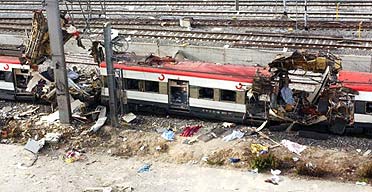Flickr
Bombing, Barrenechea
Rawle



Al-Qaida's attack on the World Trade Center and the Pentagon on 11 September 2001 set the path for NATO to follow in the 21st century. Following attacks including "bombings of the Madrid commuter train system on 11 March 2004 and the public transport systems in London on 7 July 2005" reinforced their decision to follow the path of fighting terrorism throughout the world (NATO History, NATO).
The first act down this path was Operation Enduring Freedom. This operation sent military forces from many countries, most of which were NATO allies, into Afghanistan in an attempt to overthrow the Taliban and weaken al-Qaida. This operation was met with success (NATO History, NATO.
In 2002, the NATO-Russia Council was established with the aim of approaching "security issues of common interest" together. In 2004 the Council launched an operation in Istanbul with the aim of establishing stability in the Middle East (NATO History, NATO).
In 2004, Romania, Bulgaria, Slovakia, Slovenia, Latvia, Estonia and Lithuania joined NATO. Croatia and Albania joined in 2009 (NATO History, NATO).
Now, NATO and its allies cooperate to try to preserve peace and stability throughout the world with emphasis on Europe and the Middle East (NATO History, NATO).